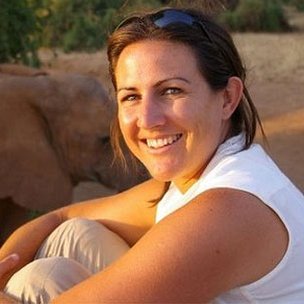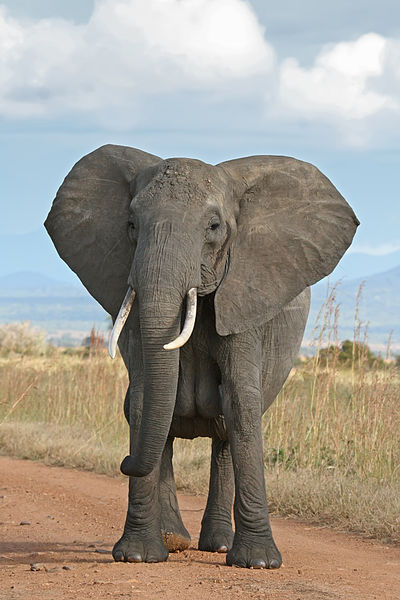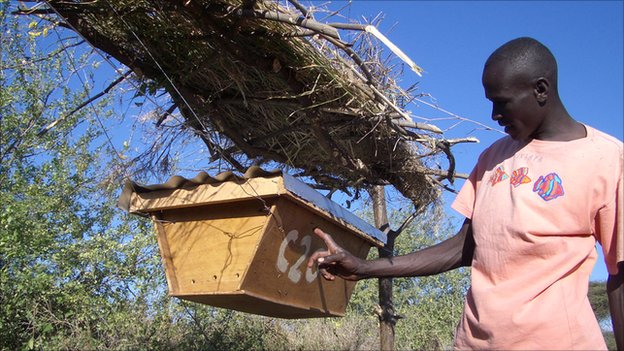The following article is from the United Nations Environment Programme’s web site:
Bergen, 22 November 2011. The UNEP/CMS Thesis Award has been conferred today to British biologist, Dr. Lucy E. King, whose research on reducing conflict between humans and elephants has triggered quite a buzz in Kenya. Her research, based on the fact that elephants are scared of being stung by bees, has led to an innovative beehive fence that is assisting to reduce conflicts between the world’s largest terrestrial mammal and local people in Kenya. The fence could become a blueprint for curbing similar problems in other countries with large elephant populations and expanding agricultural land.
At a ceremony in the margins of a UN wildlife conference in Bergen, Norway, Dr. King was presented with the international research prize of the Convention on the Conservation of Migratory Species of Wild Animals of the United Nations Environment Programme (UNEP/CMS) for developing the fence as a natural deterrent from crop-raiding elephants. “I congratulate Dr. King as the winner of this important award. Her research underlines how working with, rather than against, nature can provide humanity with many of the solutions to the challenges countries and communities face,” said UN Under-Secretary General and UNEP Executive Director Achim Steiner. “Investing and re-investing in biodiversity and ecosystems from forests to freshwaters is a key strand of UNEP’s Green Economy work as the world heads towards Rio+20 next June. Dr. King’s work spotlights an intelligent solution to an age-old challenge while providing further confirmation of the importance of bees to people and a really clever way of conserving the world’s largest land animal for current and future generations,” he added. “By reducing conflicts between people and elephants, Dr. Lucy King has designed a constructive solution that considers the needs of migratory animals but also the economic benefits to the local communities linked to species conservation,” said CMS Executive Secretary Elizabeth Maruma Mrema.
Dr. King’s research has focused on the response of the African Savannah Elephant to the tiny honey bees. In 2002 African honeybees were found to act as a deterrent as elephants do not feed on acacia trees hosting beehives because they are afraid of being attacked, and once stung, they will remember it forever. Studying elephant behaviour and communication was crucial to understanding their patterns of avoiding honey bees. During the experiment, elephants ran from the digital playback of bee sounds and when doing so transmitted a unique low frequency rumble that warned other elephants in the area to retreat. Based on the standard behavioural pattern of elephants when interacting with bees, Dr. King developed the beehive fence as a device to prevent migrating elephants from entering agricultural areas.
A two-year pilot project started in Kenya in 2008 covering 17 farms with fences and 17 farms surrounded by traditional thorn bush barriers. Elephants pushing against the wire connecting the different beehives would shake them unpredictably and disturb the bees. The beehive fences were built with one beehive every 10 meters and an elephant attempting to enter a farm would instinctively try to bypass the beehives. The beehive fence was successfully adopted by farming communities in three different districts, and by three different tribes in Kenya. Ninety different raids, or attempted raids, by elephants were monitored, during which only six incidents, or seven per cent, of elephants crossing the beehive fences were recorded. Based on this, Dr. King concluded that damaging crop-raiding events could be radically reduced for farmers adopting protective beehive fences around their crops.
Finally, beekeeping was listed as an equal income generator next to farm work as farmers indicated that beekeeping had become the third most time consuming activity after farm work and charcoal making in 2010. In comparison, scaring away elephants was ranked eight among the most time-consuming activities. By studying elephant behavioral patterns and designing protective beehive fences, Dr. King not only provided contributions to natural science but to social science, which were translated into community development. Moreover, the project is now being replicated in Tanzania and Uganda.




